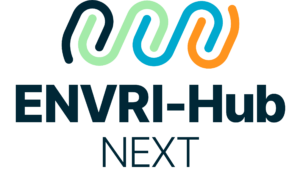
ENVRI-Hub NEXT: Bringing environmental science to the next level
Researchers face challenges in accessing and analysing the wealth of environmental data scattered across numerous sources. ENVRI-Hub NEXT bridges this gap, offering a user-friendly platform for seamless access to data from environmental Research Infrastructures, fostering interdisciplinary research and driving breakthroughs in environmental science.
ENVRI-Hub NEXT consolidates and advances the robust conceptual and technical structure established by the ENVRI-Hub to empower the ENVRI Science Cluster to provide interdisciplinary data-driven services. These services will support climate change research, including the development of mitigation and adaptation measures and strategies, and the assessment of the climate change risks. Through this platform, ENVRI-Hub NEXT will facilitate the integration of the environmental sciences community into EOSC, guided by the concept of Essential Climate Variables. ENVRI-Hub NEXT expands the frontiers of multidisciplinary environmental sciences by fostering operational synergies between ENVRI RIs and developing and utilising complementarities in their data and services provision. The joint forces of ENVRI and e-infrastructures allow for the integration of cutting-edge information technology, alignment with the EOSC architecture, and efficient resource allocation for the advancement of a more integrated, productive, and globally competitive ENVRI Science Cluster.
ENVRI-Hub NEXT brings together 11 Research Infrastructures representing 4 Earth system domains: ACTRIS, AnaEE, Data Terra, eLTER, EPOS, Euro-Argo, IAGOS, ICOS, LifeWatch, SeaDataNet, SIOS.
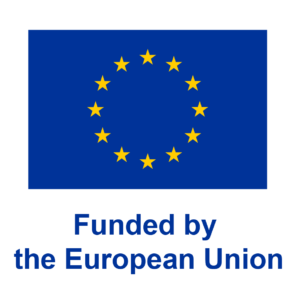
“Funded by the European Union. Views and opinions expressed are however those of the author(s) and do not necessarily reflect those of the European Union or REA. Neither the European Union, nor the granting authority can be held responsible for them.”
A Key Exploitable Result (KER) is a result or a group of similar results with particularly high exploitation potential, i.e. use and benefits from something often for commercial purposes, in public policymaking, or for further research. Please find the list of ENVRI-Hub NEXT KERs below:
KER1: ENVRI-Hub Framework
A federated system of harmonised access platforms, including:
- Knowledge Base and Search Engine: Indexer for structured/unstructured resources, search dialogue recommender, semantic search, training materials, videos, and documentation.
- Data and Services Catalogue: Integrated metadata catalogue, harmonised data formats, compliant vocabularies, metadata mappings, publishing APIs, data access interface APIs, and a graphic user interface.
- Data Analytical Framework: Tools for data analysis, retrieval, visualisation, reusable workflows, integration with third-party frameworks, and user-friendly interfaces.
- Training Gateway: Discovery of environmental observations, services, tutorials, and resources.
KER2: ENVRI-Hub Service Management System
Processes, procedures, and policies governing the delivery of the ENVRI-Hub framework, enabling multi-provider service delivery, data integration, and training resource development.
KER3: ENVRI-Hub Technical Architecture
A service-oriented architecture incorporating ENVRI-Hub components (KER1), enabling services (KER4), RI and e-Infrastructure services, adopting a microservice-based cloud-native design.
KER4: Services and policies for EOSC integration
Tools and policies for accessing ENVRI-Hub via EOSC Exchange, including single-sign-on, accounting, monitoring, technical support, and software quality validation, compliant with EOSC interoperability standards.
KER5: ECV scientific and technical framework
Framework for ECV vocabulary and metadata, smart parameter mappings, data access APIs, workflow templates, thematic integration across RIs, and training content.
KER6: ENVRI-Hub Training Materials
Training content on metadata provision, identity and access management, service usage, ECVs, user experience design, and variable vocabulary. Includes training sessions, webinars, and “Train the Trainers” events.
Coordinator
EGI Foundation, Netherlands
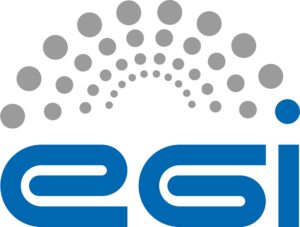
EGI is the federation of computing and storage resource providers united by a mission of delivering advanced computing and data analytics services for research and innovation.
- WP1/2 Leader: Project Management and Coordination
- WP3/4 Leader: Communications, exploitation, and training activities
- WP15 Leader: Ethics requirements
Partners
Council for Agricultural Research and Economics – CREA, Italy
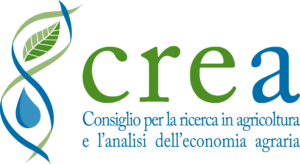
CREA is the leading Italian research entity dedicated to agri-food supply chains. It operates as a legal entity under public law and is supervised by the Ministry of Agriculture, Food Sovereignty and Forests (Masaf). Its scientific activity covers agricultural crops, livestock, fishery, forestry, agro-industry, food science, and socio-economics. The organization has full scientific, statutory, organizational, administrative, and financial autonomy.
- WP5/6 Leader: Development Management
- WP13/14 Leader: Analytical Framework
European Plate Observing System – EPOS, Italy
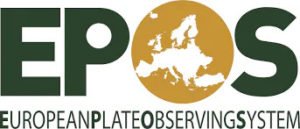 EPOS, the European Plate Observing System, is a multidisciplinary, distributed research infrastructure that facilitates the integrated use of data, data products, and facilities from the solid Earth science community in Europe.
EPOS, the European Plate Observing System, is a multidisciplinary, distributed research infrastructure that facilitates the integrated use of data, data products, and facilities from the solid Earth science community in Europe.
- WP7 Leader: Data and Services Catalogue
Integrated Carbon Observation System – ICOS-ERIC, Finland
![]() The Integrated Carbon Observation System, ICOS, is a European-wide greenhouse gas research infrastructure. ICOS produces standardised data on greenhouse gas concentrations in the atmosphere, as well as on carbon fluxes between the atmosphere, the earth and oceans. This information is being used by scientists as well as by decision-makers in predicting and mitigating climate change. The high-quality and open ICOS data is based on the measurements from over 168 stations across 16 European countries.
The Integrated Carbon Observation System, ICOS, is a European-wide greenhouse gas research infrastructure. ICOS produces standardised data on greenhouse gas concentrations in the atmosphere, as well as on carbon fluxes between the atmosphere, the earth and oceans. This information is being used by scientists as well as by decision-makers in predicting and mitigating climate change. The high-quality and open ICOS data is based on the measurements from over 168 stations across 16 European countries.
- WP8 Leader: Data and Services Catalogue
University of Amsterdam – UvA, Netherlands
 The University of Amsterdam belongs to Europe’s top universities. With over 40,000 students, 6,000 staff members and 3,000 PhDs, it is a hub of academic research and education.
The University of Amsterdam belongs to Europe’s top universities. With over 40,000 students, 6,000 staff members and 3,000 PhDs, it is a hub of academic research and education.
- WP9/10 Leader: ENVRI knowledge base and search engine
National Research Council – CNR, Italy
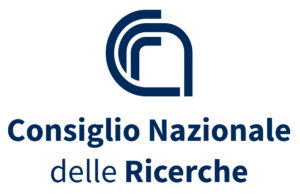 The National Research Council (CNR) is Italy’s largest public research institution, operating under the Research Ministry and performing multidisciplinary activities. CNR conducts research, promotes national industrial innovation and international research collaboration, provides technologies and solutions for public and private needs, advises the government, and enhances human resource qualifications.
The National Research Council (CNR) is Italy’s largest public research institution, operating under the Research Ministry and performing multidisciplinary activities. CNR conducts research, promotes national industrial innovation and international research collaboration, provides technologies and solutions for public and private needs, advises the government, and enhances human resource qualifications.
- WP11/12 Leader: Enabling Services – Rollout & Integration
CESNET, Czech Republic
CESNET provides advanced information and communication services for science, research, and education. It manages and develops the academic computer network, ensures secure access to its services, and offers resources for complex computations, data storage, and communication tools for individuals and teams. CESNET is an association of legal entities, with members including public universities and the Academy of Sciences of the Czech Republic.
Centre National de la Recherche Scientifique – CNRS, France

The National Centre for Scientific Research (CNRS) is a major player in basic research on the global stage and the only organisation in France that is active in all fields of science. Its unique position as a specialist in multiple fields means that it can bring together different scientific disciplines to shed light on and gain insight into current global challenges, in partnership with public sector, social and economic stakeholders. Together the sciences are used to bring about sustainable progress that benefits the whole of society.
National Research Council – CSIC, Spain
![]()
It is the largest public multidisciplinary research organization in Spain and one of the largest in Europe. CSIC conducts research across a wide range of scientific disciplines, including biology, chemistry, physics, engineering, humanities, and social sciences. Its mission is to promote and carry out scientific research of excellence, transfer knowledge to society, and contribute to the training of new researchers. CSIC plays a crucial role in advancing scientific knowledge, technological innovation, and social progress in Spain and beyond.
Euro-Argo ERIC, France
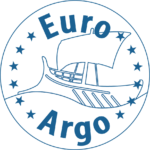
Euro-Argo ERIC is an organisation established to coordinate and manage the European component of the Argo Programme. The Argo Programme is an international initiative that deploys a global array of profiling floats to monitor the temperature and salinity of the upper ocean. Euro-Argo ERIC facilitates the operation, maintenance, and data management of Argo floats in European waters, contributing to global ocean observations and research efforts.
Forschungszentrum Jülich – FZJ, Germany
![]()
Forschungszentrum Jülich- FZJ aims to attract outstanding scientists, talented young professionals, and highly qualified employees for the areas supporting research, namely administration and infrastructure. With more than 7,000 employees, Jülich is one of the largest interdisciplinary research centres in Europe and a member of the Helmholtz Association. As an open, responsible campus with vision, Jülich is an excellent place for inspiring exchanges with people from all over the world.
Finnish Meteorological Institute – FMI, Finland

The Finnish Meteorological Institute makes observations and research on the atmosphere, the near space and the seas. It also provides services on weather, sea, air quality, climate and near space for the needs of public safety, business life and citizens. The Finnish Meteorological Institute is an administrative branch of the Ministry of Transport and Communications.
Greek Research and Technology Network – GRNET, Greece

GRNET is the national research and education network (NREN) of Greece. It provides advanced data communication and networking services to support the research and education community in Greece. GRNET operates high-speed connectivity infrastructure, including a national research and education network backbone, interconnecting universities, research centers, libraries, and other educational institutions across the country. Additionally, GRNET offers a range of services such as cloud computing, high-performance computing, digital repositories, and cybersecurity solutions tailored to the needs of the research and education community. Its mission is to facilitate collaboration, innovation, and knowledge exchange among academic and research institutions in Greece.
French national institute for ocean science and technology – Ifremer, France

IFREMER conducts research and provides expertise on marine sciences and technologies, focusing on sustainable management of marine resources, marine biodiversity, oceanography, marine ecosystems, and coastal environments. IFREMER plays a significant role in advancing knowledge about the oceans and their resources, supporting policies for marine conservation and sustainable development.
National Institute of Geophysics and Vulcanology – INGV, Italy
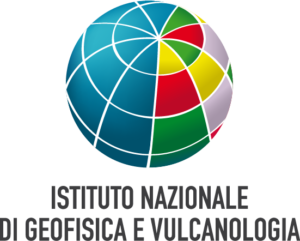
INGV is an Italian research institute dedicated to the study of geophysics, seismology, and volcanology. INGV monitors seismic and volcanic activity in Italy, conducts research on earthquake and volcanic hazards, and provides scientific expertise and data to support disaster risk reduction and emergency response efforts. Additionally, it contributes to international collaborations and initiatives aimed at understanding Earth processes and mitigating natural hazards.
LifeWatch ERIC, Spain

LifeWatch ERIC is a European Research Infrastructure Consortium providing e-Science research facilities to scientists investigating biodiversity and ecosystem functions and services in order to support society in addressing key planetary challenges. LifeWatch ERIC was established as a European Research Infrastructure Consortium by the European Commission in 2017.
Laboratory of Instrumentation and Experimental Particle Physics – LIP, Portugal

LIP is a research institution in Portugal dedicated to experimental particle physics and related fields. LIP conducts research in collaboration with international institutions, participates in experiments at major particle physics laboratories such as CERN, and contributes to the development of advanced instrumentation for particle physics experiments. LIP plays a significant role in advancing knowledge in particle physics and training new generations of researchers in Portugal.
Lund University, Sweden

Lund University offers a wide range of undergraduate, graduate, and doctoral programs across various disciplines, including natural sciences, social sciences, humanities, engineering, and medicine. Renowned for its research-intensive environment, the university fosters interdisciplinary collaboration and encourages students to engage in hands-on research projects. With a vibrant campus community and a commitment to sustainability and diversity, Lund University provides students with a dynamic and inclusive learning environment.
MARIS BV, Netherlands
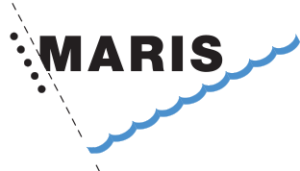
MARIS is deeply engaged in the development and operation of Marine and Oceanographic Data Management services and networks on a pan-European scale. The company participates as a coordinator, technical coordinator, or partner in various EU-funded projects aimed at harmonising and standardising the discovery and access to marine and ocean data, as well as generating and publishing pan-European data products. Within these projects, MARIS plays a significant role in developing technical infrastructures and long-term strategies for the wider use of oceanographic and marine data and sustained operation.
NILU, Norway

NILU, an independent Norwegian climate and environmental research institute established in 1969, initially focused on air research. Over time, it has diversified its research scope to encompass various aspects of the interactions between people, climate, and the environment. The institute’s overarching objective is to enhance the quality of life for all individuals. This goal is pursued through research on atmospheric composition, climate change, air quality, environmental pollutants, health impacts, sustainable systems, circular economy practices, and digitalization. Through collaborative efforts, NILU facilitates the development of sustainable solutions to address contemporary societal and business challenges.
Helmholtz Centre For Environmental Research – UFZ, Germany
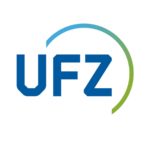
The UFZ is a globally recognised environmental research centre dedicated to demonstrating sustainable use of natural resources for the benefit of humanity and the environment. It conducts excellent research, supports political, economic, and public understanding of environmental impacts, and develops solutions for societal decision-making. By integrating natural, engineering, and social sciences, the UFZ addresses complex environmental issues, fostering national and international cooperation and utilizing innovative scientific infrastructures.
Research Infrastructures
ENVRI-Hub NEXT brings together 11 Research Infrastructures representing 4 Earth system domains.
- ACTRIS
- AnaEE
- Data Terra
- eLTER
- EPOS
- Euro-Argo
- IAGOS
- ICOS
- LifeWatch
- SeaDataNet
- SIOS
Latest news
Join the ENVRI-Hub User Group
The ENVRI-Hub User Group is a collaborative space for researchers, data scientists, and environmental professionals to shape the development of digital research infrastructure. As a member, you will have the opportunity to test new tools, provide feedback, define training needs, and contribute to the growth of ENVRI-Hub services.
What is the ENVRI-Hub?
The ENVRI-Hub is a central platform that provides access to environmental research infrastructures, data, and digital tools across multiple disciplines. It helps researchers tackle challenges in climate change, biodiversity, ecosystem services, and other environmental fields by offering interoperable resources that align with FAIR (Findable, Accessible, Interoperable, Reusable) principles.
Deliverables and Milestones
Our outputs are available via the ENVRI-Hub NEXT Zenodo Community.
You can find all the latest updates from ENVRI-Hub NEXT on the ENVRI Community social media platforms:



#ENVRIHubNEXT
Project contacts
Project Office: envri-hub-next-po@mailman.egi.eu



